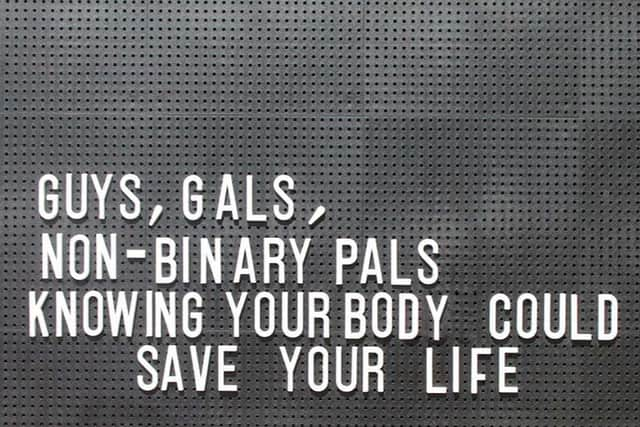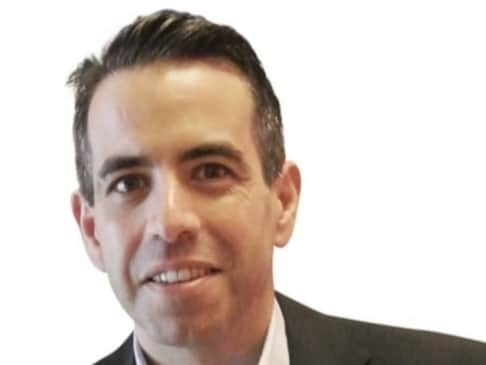Mayor of Liverpool urges women to get screened for breast cancer after diagnosis
and live on Freeview channel 276
“When I became Mayor of Liverpool, I knew there would be challenges ahead. But one personal challenge I wasn’t expecting was to be diagnosed with breast cancer earlier this year.”
Joanne Anderson recalls her experience with breast cancer and urges others to check their breasts and attend routine screenings.
Advertisement
Hide AdAdvertisement
Hide AdThe Mayor of Liverpool revealed her diagnosis on the city’s council website, saying she “hadn’t thought much about the routine screening” and that she received a letter “recalling me after my mammogram.”
Showing no symptoms, Ms Anderson had a biopsy taken and received the terrible news, “I had cancer.”
The Mayor said her cancer diagnosis was during “one of the most difficult periods Liverpool City Council has ever been through.”
Initially told the cancer was Stage One, it was later found to be Stage Two, but still treatable after surgery. She then underwent radiotherapy treatment.
Advertisement
Hide AdAdvertisement
Hide AdShe reitarated the importance of screenings, writing: “Early detection and diagnosis are absolutely key to giving people the best chance of survival. Yes, mammograms aren’t comfortable – but a few minutes of discomfort are certainly worth your life.”
Ms Anderson discussed the difficulty she faced balancing her health and her important work: “I was signed off for three months, but my job is not one you can take time off from. I took the recommended two weeks off after the operation but needed to get back to work to deal with important issues in the city.
“After attending a full council meeting, a wake-up call arrived when I was struck down with a virus. Clearly my body was telling me I was trying to do too much and that it was owed more respect. I knew I needed to incorporate more balance into my life if I was going to have the best chance of recovery.
“I will be forever grateful to the NHS staff who treated me during this time. The speed with which I was diagnosed and treated was incredible and their compassion, skill and knowledge reassured me throughout that I was in good hands and that everything was going to plan.
Advertisement
Hide AdAdvertisement
Hide Ad“The experience also made me realise the kindness of strangers, particularly women who I had never met. They reached out offering support after going through the same thing – this was both powerful and humbling.”
Breast cancer screenings and symptoms
You automatically get your first invite for breast screening between the ages of 50 and 53. You’ll then be invited every 3 years until you turn 71.
Most cases of breast cancer are diagnosed in women aged 50+, but it can happen at any age – which is why it’s important to check your breasts regularly for any unusual changes and contact your GP if you find any unusual lumps.


CoppaFeel! also remind people that breast cancer can affect any gender, and that everyone should check their breasts (or chest) on a monthly basis. Visit the CoppaFeel! website for advice on how to check your breasts.
Advice from local hospitals
Advertisement
Hide AdAdvertisement
Hide AdProfessor Carlo Palmieri, Medical Oncologist at The Clatterbridge Cancer Centre NHS Foundation Trust, who specialises in breast cancer told LiverpoolWorld: “I recommend people take a ‘TLC’ approach. TOUCH your breasts. Can you feel anything new or unusual? LOOK for changes. Does anything look different? CHECK any new or unusual changes with your GP.”
“Remember, breast cancer doesn’t always cause a lump in the breast. If the skin looks different, if the nipple has changed or there is a rash, get checked.”


He added: “If you have been invited for breast screening but missed or did not book an appointment you can still contact your local NHS breast screening service to arrange one, even if you were invited weeks or months ago.
“Breast cancer screening saves the lives of around 1,300 women every year in the UK and around 21,000 cancers are detected via this method. It takes only a few minutes to perform and helps find breast cancers at an early stage when they are too small to see or feel. In addition to hospitals, mobile screening vans are available in convenient community locations, such as supermarket car parks.”
Comment Guidelines
National World encourages reader discussion on our stories. User feedback, insights and back-and-forth exchanges add a rich layer of context to reporting. Please review our Community Guidelines before commenting.
